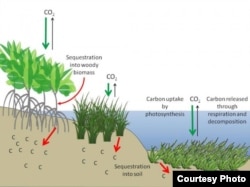- Sep 2, 2008
- 33,178
- 3,055
- 48
BP reneges on deal to rebuild oyster beds, repair wetlands, Louisiana officials say | NOLA.com
BP has reneged on promises made in November to negotiate early payments to Louisiana to help rebuild oyster beds, repair damaged wetlands and build a fish hatchery to allow the state to respond immediately to the collapse of commercial fisheries in the wake of the BP Gulf oil spill, state officials said Monday.
Coastal Protection and Restoration Authority chairman Garret Graves and Department of Wildlife & Fisheries director Robert Barham said the state will instead scramble to find millions of dollars to begin the work itself, then bill BP for the costs.
"BP has clearly changed their approach," Barham said. "All we've asked is for them to do what they said they would do in their commercials, be here for the long haul and make it right."
Last edited by a moderator:



